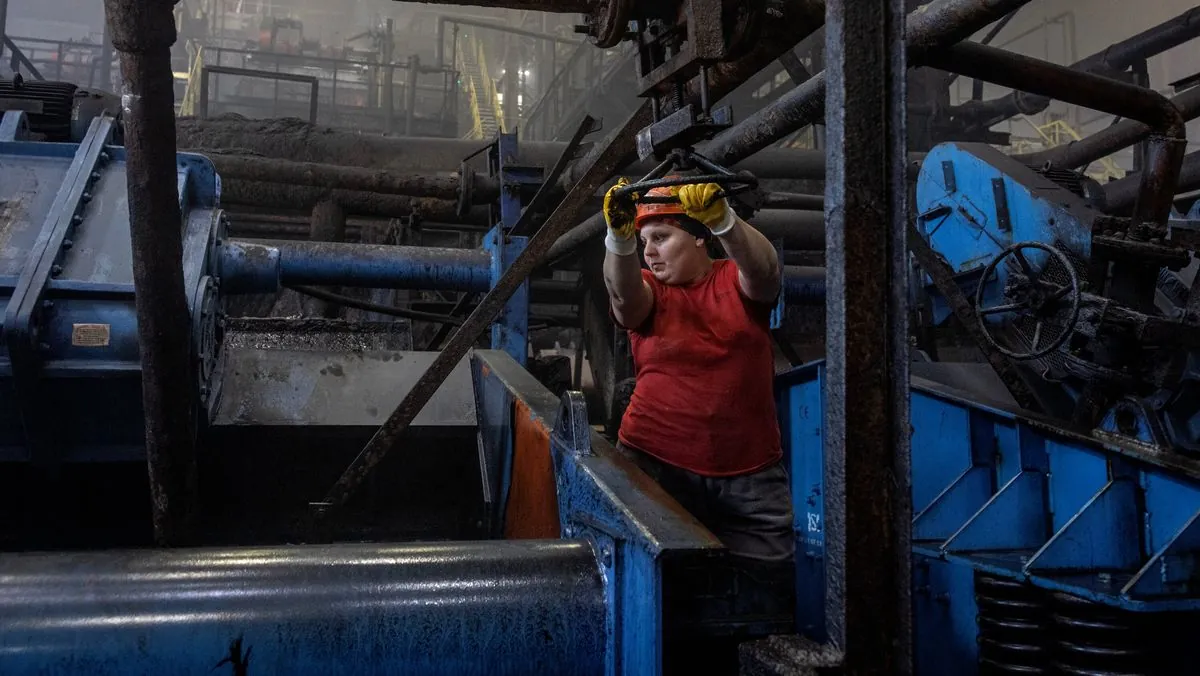Ukraine's Labor Crisis: Companies Adapt to Wartime Workforce Challenges
Ukrainian businesses tackle severe labor shortages by hiring more women and youth for traditionally male roles. The workforce crisis, stemming from war-related population shifts, threatens economic recovery.

In the face of ongoing conflict with Russia, Ukrainian companies are grappling with a severe labor shortage, forcing them to adapt their hiring practices and workforce strategies. This crisis, now in its second year, has led to innovative solutions but also raises concerns about the country's economic future.
Liliia Shulha, a 40-year-old former office worker, exemplifies this shift. She recently fulfilled her childhood dream of driving large vehicles by becoming a truck driver for Fozzy Group, Ukraine's leading retailer. Shulha's story reflects a broader trend of women entering traditionally male-dominated fields to fill critical gaps in the workforce.
"I always dreamed about big cars. Instead of (playing with) dolls, I drove cars when I was a child. Now the situation is such that they take people without experience and they train. I was lucky."
The labor crisis stems from multiple factors. Millions of Ukrainians, primarily women and children, have fled the country since Russia's invasion in February 2022. Additionally, tens of thousands of men have been mobilized into the military. As a result, Ukraine has lost over a quarter of its workforce in just over 18 months, according to central bank data.
This shortage is particularly acute in male-dominated industries such as construction, transport, and mining. To address these gaps, companies are not only hiring more women but also turning to teenagers, students, and older workers. They're also offering training programs, increasing wages, and providing more comprehensive benefits packages.

Tetiana Petruk, chief sustainability officer at Metinvest, one of Ukraine's largest employers with about 45,000 workers, described the situation as "critical." The company currently has around 4,000 vacancies, which is impacting production. Metinvest, like many other firms, is adapting by hiring more women for roles previously dominated by men, including some underground jobs in their steel production facilities.
The retail sector is also evolving. Silpo, part of Fozzy Group, is actively recruiting women for positions such as loaders, meat splitters, packers, and security guards. The company now has six female truck drivers, including Shulha.
Ukraine's labor market challenges are expected to persist, prompting businesses to focus on young people. Companies like Metinvest are expanding their outreach to professional colleges, while Silpo is hiring more teenagers for entry-level supermarket jobs. Mobile operator Vodafone has launched a specialized internship program for students in 12 cities, offering about 50 teenagers their first job experience.
The Ukrainian government, recognizing the severity of the situation, has implemented programs to help citizens reskill. Tetiana Berezhna, a deputy economy minister, stated that the government is providing opportunities for everyone to obtain new in-demand professions or enhance their professional skills at state expense.
These workforce changes are occurring against the backdrop of Ukraine's rich industrial and agricultural heritage. Known as the "breadbasket of Europe," Ukraine has a strong tradition of metallurgy and heavy industry. The country's highly developed IT sector and nearly 100% literacy rate provide a solid foundation for workforce adaptation.
As Ukraine continues to navigate these challenging times, the resilience and adaptability of its workforce and businesses will be crucial for economic stability and future recovery. The current crisis, while daunting, may also lead to long-term positive changes in workforce diversity and skill development across various sectors.


































